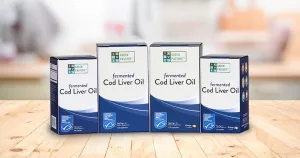Raising your glutathione levels might offer health advantages, including lowering oxidative stress that can contribute to symptoms across a range of chronic conditions, such as autoimmune disorders.
Glutathione is an antioxidant synthesized within cells. It is mainly composed of three amino acids: glutamine, glycine, and cysteine.
Several factors can reduce glutathione concentrations in the body, including inadequate nutrition, environmental pollutants, and stress. Levels also tend to fall with advancing age.

Besides being produced endogenously, glutathione can be administered intravenously, applied topically, or inhaled. It’s also sold as an oral supplement in capsule and liquid forms. Still, oral glutathione may be less effective than intravenous administration for certain conditions.
Glutathione benefits
There are a number of possible benefits associated with glutathione.
Reduces oxidative stress
Oxidative stress arises when there is an imbalance between free radical production and the body’s capacity to neutralize them. Excessive oxidative stress can precede several diseases, including:
- diabetes
- cancer
- rheumatoid arthritis
Glutathione is an antioxidant that helps counteract oxidative stress, which may in turn reduce risk or progression of disease.
May improve psoriasis
Research has shown lower glutathione levels in people with psoriasis. These findings imply that dimethyl fumarate, a drug commonly used for multiple sclerosis, might be beneficial for psoriasis because it helps lower inflammation. Dimethyl fumarate can also raise glutathione through several mechanisms. However, more investigation is necessary to clarify its role in treating multiple sclerosis.
A 2022 review indicates that therapies which boost antioxidants like glutathione can help manage oxidative stress and reactive oxygen species (ROS) linked to it. This may ease psoriasis symptoms for some individuals.
Reduces cell damage in fatty liver disease
Insufficient antioxidant protection, including low glutathione, can worsen liver cell death. This can contribute to fatty liver disease in both people who consume alcohol excessively and those who do not. Glutathione has been shown to improve protein, enzyme, and bilirubin measures in the blood of people with alcoholic fatty liver disease and metabolic dysfunction-associated steatotic liver disease (MASLD).
A small study found that orally administered glutathione produced beneficial outcomes for people with MASLD (previously called nonalcoholic fatty liver disease) when combined with proactive lifestyle changes. In that trial, glutathione supplements were given at 300 milligrams per day for four months.
According to clinical guidance, restoring glutathione is vital in cases of acetaminophen overdose. Such overdoses can cause liver failure if untreated. N-acetylcysteine is administered to replenish glutathione, assisting the liver in metabolizing acetaminophen and preventing further hepatic injury.
Improves insulin resistance
Insulin resistance occurs when certain cells in the liver, muscles, and fat do not respond adequately to insulin and therefore cannot take up glucose from the bloodstream efficiently. It is commonly linked to diabetes and prediabetes.
A study of men with obesity, some with type 2 diabetes and others without, observed that oral glutathione supplementation improved insulin resistance across participants. This suggests glutathione may help enhance insulin sensitivity.
Increases mobility for people with peripheral artery disease
Peripheral artery disease happens when peripheral arteries become narrowed by plaque buildup, commonly affecting the legs.
Research reported that glutathione improved circulation and increased participants’ ability to walk longer distances without pain. In that study, participants received intravenous glutathione infusions twice daily for five days and were then evaluated for mobility compared with a saline placebo group.
May help fight against autoimmune disease
Chronic inflammation from autoimmune diseases can raise oxidative stress. Conditions include rheumatoid arthritis, celiac disease, and lupus.
Evidence suggests glutathione can reduce oxidative stress by modulating the immune response. Autoimmune disorders, such as lupus, can damage mitochondria in specific cells. Glutathione helps protect mitochondrial function by neutralizing free radicals.
Side effects and risks
Eating a diet rich in foods that support glutathione typically carries no risk. However, taking supplements might not be appropriate for everyone.
Consult your healthcare provider about glutathione to determine if it’s suitable for you. Potential side effects may include:
- abdominal cramps
- bloating
- difficulty breathing from bronchial constriction
- allergic reactions, such as rash
The bottom line
Glutathione is a potent antioxidant produced within cells. Its levels decline with age, stress, and exposure to toxins. Enhancing glutathione may yield several health benefits, including reducing oxidative stress.
Other possible advantages include improvements in insulin resistance and psoriasis, and limiting damage from fatty liver disease.
Although glutathione is generally regarded as safe, consult your healthcare professional before starting any supplement regimen.

























Leave a Reply
You must be logged in to post a comment.